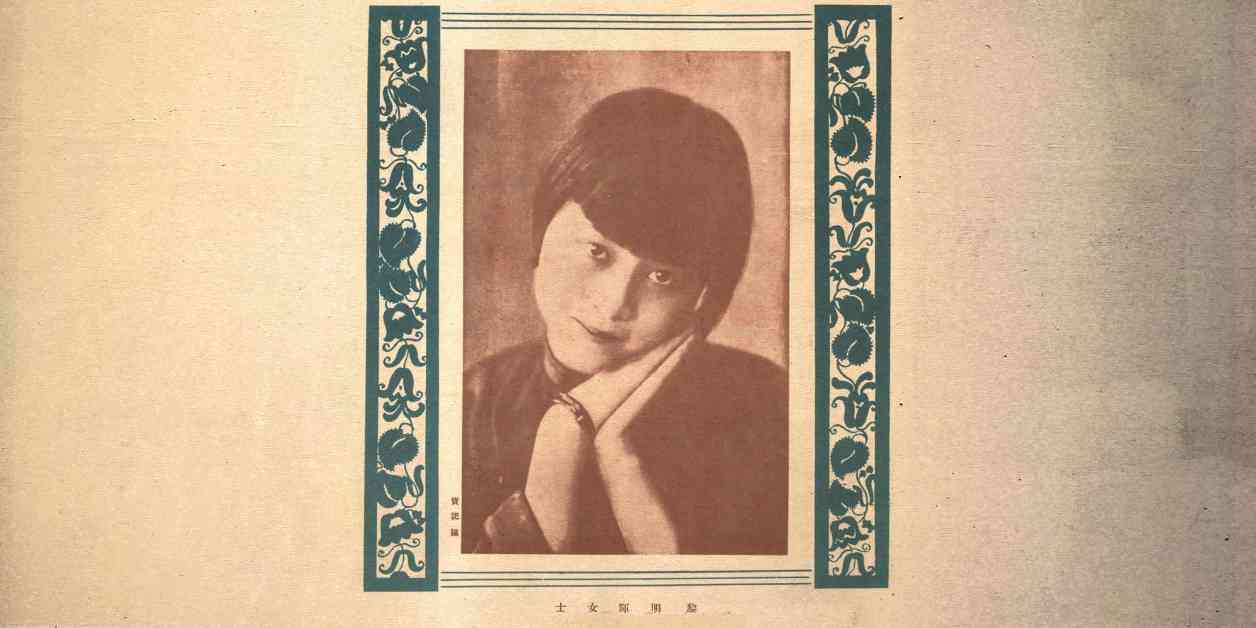**The Rise of Female Idols in 1920s Shanghai: A Gender Revolution**
In the glamorous world of 1920s Shanghai, a quiet gender revolution was brewing. It was on a serene night in 1922 that the Central Theater in Shanghai witnessed the premiere of the spoken drama “Ms. Orchid,” produced by the Shanghai Experiment Troupe. The spotlight shone on an unexpected figure at the center stage – a 12-year-old actress named Li Minghui. To modern audiences, the alignment of performer and character may seem natural, but for director Li Jinhui, Li Minghui’s father, the casting of a female performer in her biological sex was a daring experiment. This move challenged centuries of tradition in Chinese theater, where all female characters were traditionally played by men, excluding women from the dramatic world.
Li Minghui’s debut as the eponymous heroine in “Ms. Orchid” marked the beginning of a series of controversies. Cultural conservatives condemned her performances as licentious, while ordinary audiences found her captivating. In a few short years, Li Minghui rose to become one of the most beloved stars in Shanghai, making her mark across various media platforms – from the theatrical stage to musicals, vinyl records, and eventually the silver screen.
During the 1920s, traditional Chinese operas dominated the entertainment scene in Shanghai and beyond. Male impersonators were revered for their portrayal of female characters, claiming to embody a more “authentic” femininity than women themselves. Li Minghui’s career shattered this tradition, introducing a new era of female stardom that incorporated modern dance styles and popular music. Her cross-media performances in theater and cinema marked a departure from the male-centric stage of xiqu, aligning with Shanghai’s evolving mediascape of gramophones, dance halls, and sound cinema.
**Li Minghui: The Pioneer of Modern Female Idols**
As Shanghai embraced new media technologies, Li Minghui emerged as a pioneer in the modern star system. Her image and voice were disseminated across multiple platforms, creating an immersive celebrity culture that foreshadowed today’s media saturation. Li Minghui’s father, Li Jinhui, played a crucial role in shaping this new cultural landscape. Known as the founding father of Chinese popular music, Li Jinhui’s entrepreneurial spirit and commitment to cultural change were evident in his diverse artistic endeavors.
Li Jinhui’s art academy and dance troupe served as breeding grounds for talented young girls, including future stars like Wang Renmei and Zhou Xuan. Through collaborations with film studios and a comprehensive training system, Li Jinhui nurtured a generation of actresses who would light up Shanghai’s silver screen. Despite criticisms of promoting “licentious singing and lurid dancing,” Li Jinhui and Li Minghui’s contributions transcended the boundaries set by elite intellectuals of the time.
While Li Jinhui’s work may not have been as politically charged or refined as that of his contemporaries, it resonated with audiences on a different level. Through his daughter’s performances, he challenged societal norms and paved the way for a new cultural ethos. The emancipation of women, a central theme of the May Fourth Movement, found expression in Li Minghui’s portrayal of the “new woman” – a figure who embodied modernity, talent, and confidence.
**The Complexities of Transmedia Representation**
However, the transmedia representations of the “new woman” were not without complexities and contradictions. While female performers like Li Minghui became central figures in Chinese popular culture, their roles often reinforced traditional gender norms. In many films, female singers were portrayed as passive objects rather than empowered individuals, their talents leading to tragedy rather than liberation. This tension between the growing prominence of female performers and societal conservatism would shape Chinese popular culture for decades to come.
Despite the challenges and criticisms they faced, Li Jinhui and Li Minghui’s legacy as pioneers of modern female idols remains undeniable. Their contributions to the cultural landscape of 1920s Shanghai laid the groundwork for a new era of female stardom and representation. As the world of entertainment continued to evolve, their influence reverberated across generations, leaving an indelible mark on the history of Chinese popular culture.

















